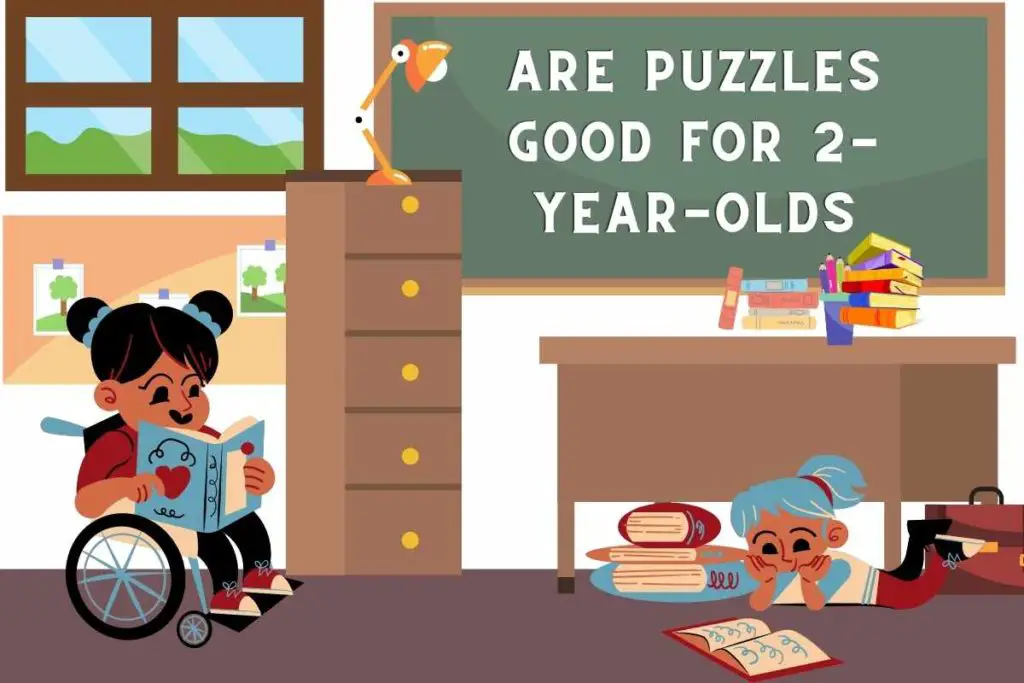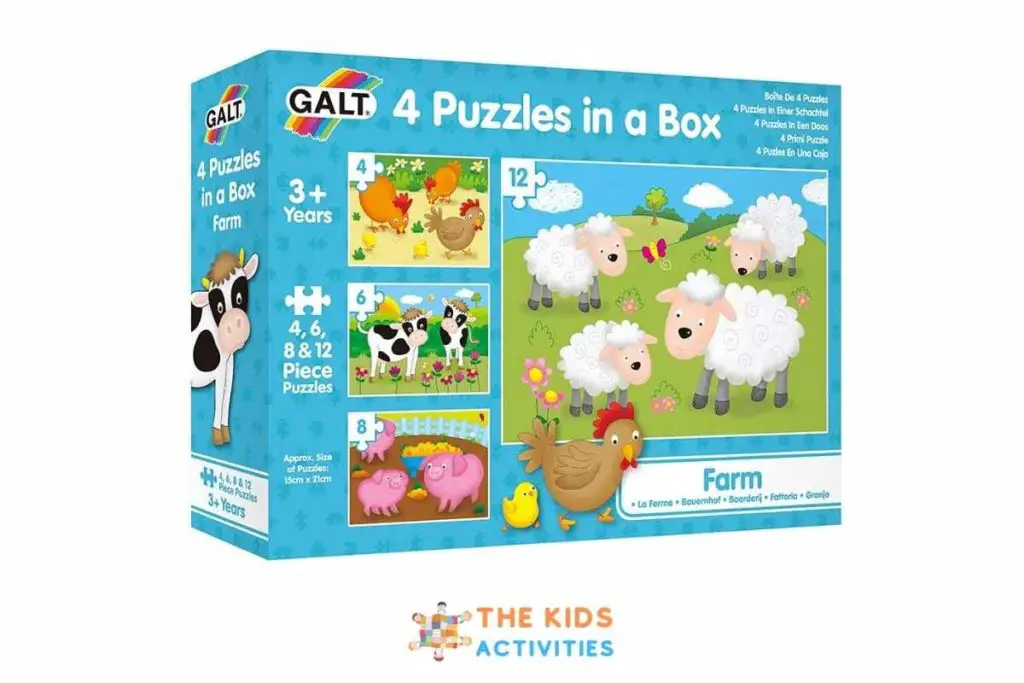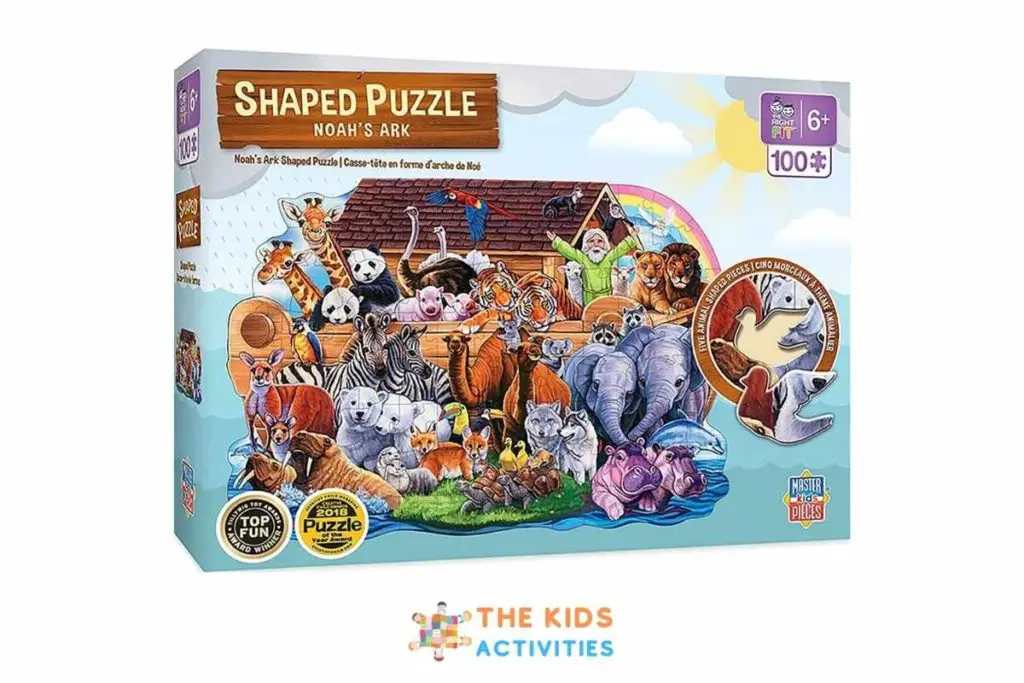Are Puzzles Good For 2-Year-Olds
Are puzzles good for 2-year-olds? Yes! Puzzles have tons of benefits for children. They help develop cognitive skills and even improve fine motor skills.
They’re a great way to teach your child problem solving and critical thinking. In this article, we’ll go over all the benefits of doing puzzles with your toddler, plus tips on what kind of puzzles they should be using at that age.
This article is about the benefits of puzzles for 2-year-olds.
Puzzles are great toys for 2-year-olds. They can help them learn, grow and develop fine motor skills, problem-solving skills, and cognitive enhancement.
Puzzles are great toys for 2-year-olds because they can help them learn to recognize different shapes and colors. Puzzles also allow your child to develop their fine motor skills by using their hands in order to pick up the pieces.
It’s also a good way for children to improve their problem-solving ability because they have to think about how they can fit together all of these pieces into one picture on top of another piece of paper or cardboard that has been cut out in the shape of whatever object you are trying out at home!
If your little one doesn’t know how exactly where each piece goes yet then it could be challenging for him or her at first but with practice comes perfection so don’t give up!
Benefits of Puzzles For Two-Year-Olds
Puzzles for two-year-olds are great for teaching your child a variety of skills. Puzzles are often designed to be used by children ages 3 and up, but there are some puzzles that can be used by younger children as well.
The benefits of puzzles for two-year-olds include:
- Developing fine motor skills
- Developing problem-solving skills
- Improving cognitive enhancement and critical thinking skills
Helps with problem-solving skills – As your child plays with puzzles, they will encounter various problems that they will need to solve in order to complete the puzzle. This will help them to develop their problem-solving skills.
Encourages creative thinking – As your child works on puzzles, they will need to use their imagination and creativity to come up with new ways to solve the problems they encounter. This will help to encourage their creative thinking skills.
Develops fine motor skills – In order to put the pieces of the puzzle together, your child will need to use their fine motor skills. This will help to develop these important skills.
Helps with concentration and focus – As your child concentrates on completing the puzzle, they will be improving their concentration and focus skills.
Teachers’ patience and perseverance – It can sometimes be difficult to complete a puzzle, but by sticking with it and being patient, your child will learn the important qualities of patience and perseverance.
Encourages turn-taking and sharing – If you are working on the puzzle with your child, they will need to take turns and share the pieces. This is a great way to encourage these important social skills.
Fine Motor Skills
Fine motor skills are the coordination of smaller muscle movements, such as in the hands, fingers, and wrists, in order to perform tasks. Many everyday activities require fine motor skills, such as writing, brushing teeth, and eating with utensils. Children begin to develop fine motor skills from a young age and continue to refine them as they grow older.
- Fine motor skills
- Hand-eye coordination
- Problem-solving, reasoning, and comprehension
Problem Solving Skills
Puzzles help children develop problem-solving skills. Problem-solving is an important skill for children to learn, as it allows them to think through a problem and come up with a solution. Puzzles can help children build this ability in several ways. The first way is by encouraging them to look at the puzzle from different angles, which helps them see the pieces interconnecting in new ways. This can help your child see new connections that they may not have seen before when they were looking at the pieces individually or only seeing how they fit together as part of a larger picture.
Another way puzzles help kids develop problem-solving skills is through practice—practice makes perfect! The more your child plays with puzzles, the better he or she will get at finding solutions that work for each individual puzzle set (or even individual piece). As his or her mind becomes trained through repeated practice, he or she will be able to make connections between different types of puzzles and solve problems faster than ever before!
Cognitive Enhancement and Critical Thinking Skills
Puzzles are a great way to help your child learn how to problem solve, think critically and solve problems.
In fact, puzzles can help your child develop important skills that are necessary for success in life by teaching them how to think in new ways. They will learn how to look at things from a different perspective; this is called metacognition which means “thinking about thinking.” They will be able to figure out a solution for themselves instead of needing someone else’s help with everything. They will also be able to make sense of the information they get from others because they understand what it means as well as why someone would say it or do something like this particular thing rather than something else entirely different (this is called inference).
Emotional Development and Self Esteem
Puzzles are a great way for your 2-year-old to develop their emotional and cognitive skills. Puzzles help them learn how to deal with frustration, work independently, and solve problems.
For example, puzzles help children develop the patience necessary for problem-solving by promoting concentration and attention span. As you guide your toddler through the puzzle, he’ll need to focus on what he is doing in order to complete it successfully. This can help him learn how to control his impulses during frustrating moments when he doesn’t get what he wants right away. Additionally, toys like puzzles teach toddlers how they can distract themselves from negative feelings by concentrating on something positive (like completing a puzzle).
Nursery Rhymes – Help with Language Development
Rhymes are a great way to help children learn a language because they have a set pattern and rhyme scheme. Children can memorize these patterns and apply them in their own speech, helping them learn how to speak. Rhymes also help with reading skills as nursery rhymes use repetition, which helps children understand words by hearing them over and over again.
Puzzles and Imagination
Puzzles are a great way to encourage your child’s creativity and imagination. When you help them solve a puzzle, they’re using their brain to figure out how each piece fits together. It also gives them an opportunity to make up stories about what the picture will look like when it is finished—and whether or not that happy family of people came from another planet!
Puzzles are good for 2-year-olds because they help them learn and grow.
Puzzles are a great way for 2-year-olds to learn and grow. They can help your child learn about shapes and colors, as well as problem-solving, language, and numbers. Puzzles also help them develop fine motor skills by working with their hands to place the puzzle pieces into their proper positions. Puzzles also promote cognitive development, language skills, and early math skills.
Puzzles are a fun activity that’s easy to engage young children in because they offer opportunities for:
- Problem-solving
- Language development
- Learning about numbers
Conclusion
We hope this article has helped you understand how important it is for two-year-olds to have fun with puzzles. By starting them early on puzzles, you’re helping them get a head start on life!


